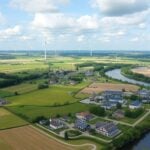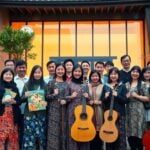A research proposal serves as a critical blueprint for any academic or scientific inquiry, delineating the framework within which the research will be conducted. It is not merely a formality; rather, it is an essential document that articulates the rationale behind the proposed study, outlining its objectives, methodology, and anticipated outcomes. The primary purpose of a research proposal is to convince stakeholders—be they academic committees, funding agencies, or institutional review boards—of the value and feasibility of the research project.
By clearly communicating the significance of the research question and the potential contributions to the field, a well-crafted proposal can secure the necessary support and resources to bring the project to fruition. Moreover, a research proposal serves as a guiding document for the researcher themselves. It compels the investigator to engage in critical thinking and thorough planning, ensuring that they have a comprehensive understanding of the existing literature and the context in which their research will be situated.
This process not only helps in refining the research question but also in identifying gaps in knowledge that the proposed study aims to fill. In essence, a research proposal is both a persuasive tool and a roadmap, laying out the path for inquiry while simultaneously inviting scrutiny and feedback from peers and experts in the field.
Key Takeaways
- A research proposal outlines the purpose, objectives, and methods of a research project, and is used to convince others of the value and feasibility of the research.
- Key components of a strong research proposal include a clear research question, a well-defined hypothesis, a feasible research plan, and a discussion of potential challenges and limitations.
- Crafting a compelling research question involves identifying a gap in existing knowledge, while a hypothesis provides a testable prediction based on the research question.
- A clear and feasible research plan includes a detailed methodology, timeline, and budget, and addresses potential challenges and limitations that may arise during the research process.
- Presenting a strong case for the significance and impact of the research involves discussing the potential contributions to the field, practical applications, and broader implications of the research findings.
Identifying the Key Components of a Strong Research Proposal
A robust research proposal is characterized by several key components that work in concert to present a coherent and compelling argument for the proposed study. At its core, a strong proposal begins with an introduction that succinctly outlines the research problem and its significance. This section should capture the reader’s attention and provide context for why the research is necessary.
Following this introduction, a comprehensive literature review is essential, as it situates the proposed study within the existing body of knowledge, highlighting previous work and identifying gaps that the current research aims to address. This not only demonstrates familiarity with the field but also establishes credibility and relevance. In addition to these foundational elements, a well-structured methodology section is crucial for detailing how the research will be conducted.
This includes specifying the research design, data collection methods, and analytical techniques that will be employed. A clear methodology not only enhances the proposal’s credibility but also reassures reviewers that the researcher has thoughtfully considered how to achieve their objectives. Furthermore, including a timeline and budget can provide additional clarity regarding the feasibility of the project, ensuring that all logistical aspects are accounted for.
Together, these components create a comprehensive picture of the proposed research, making it easier for reviewers to assess its merit and potential impact.
Crafting a Compelling Research Question and Hypothesis

The heart of any research proposal lies in its research question and hypothesis, which serve as guiding stars for the entire study. A compelling research question should be specific, measurable, and relevant to the field of inquiry. It should not only address an existing gap in knowledge but also provoke thought and inspire further investigation.
Crafting such a question requires careful consideration of the broader context and an understanding of what has already been explored in previous studies. A well-formulated question can ignite curiosity and set the stage for meaningful exploration, ultimately leading to significant findings that contribute to academic discourse. Once a strong research question has been established, formulating a hypothesis becomes the next critical step.
The hypothesis should provide a tentative answer to the research question, offering a clear prediction that can be tested through empirical investigation. It is essential that this hypothesis is grounded in existing literature and theoretical frameworks, as this lends credibility to the proposed study. A well-articulated hypothesis not only guides the research design but also helps in framing the analysis and interpretation of results.
Together, a compelling research question and a robust hypothesis form the foundation upon which all subsequent research activities will be built.
Developing a Clear and Feasible Research Plan
A clear and feasible research plan is paramount for ensuring that a proposed study can be executed effectively within its designated timeframe and budget. This plan should outline each step of the research process, from initial data collection to analysis and dissemination of findings. It is crucial to consider various methodologies that align with the research question while also being mindful of practical constraints such as time, resources, and access to participants or data sources.
A well-thought-out plan not only demonstrates thorough preparation but also instills confidence in reviewers regarding the researcher’s ability to carry out the project successfully. In addition to detailing methodologies, a comprehensive research plan should include considerations for ethical issues that may arise during the study. This involves obtaining necessary approvals from institutional review boards or ethics committees, ensuring that participants’ rights are protected throughout the research process.
Furthermore, outlining strategies for data management and analysis can enhance transparency and reproducibility, which are vital components of credible research. By developing a clear and feasible research plan, researchers can effectively navigate potential obstacles while maintaining focus on their objectives.
Addressing Potential Challenges and Limitations
Every research endeavor comes with its own set of challenges and limitations, which must be acknowledged in any comprehensive proposal. Addressing these potential obstacles upfront not only demonstrates foresight but also enhances the credibility of the researcher. Common challenges may include issues related to data collection, participant recruitment, or unforeseen variables that could impact results.
By identifying these challenges early on, researchers can develop contingency plans or alternative strategies to mitigate their effects. This proactive approach reassures reviewers that the researcher is prepared to navigate complexities that may arise during the study. In addition to logistical challenges, it is equally important to discuss inherent limitations within the proposed study itself.
These may include constraints related to sample size, generalizability of findings, or potential biases in data collection methods. Acknowledging these limitations does not weaken a proposal; rather, it reflects an honest appraisal of what can realistically be achieved within the scope of the project. By transparently addressing both challenges and limitations, researchers can foster trust with their audience while reinforcing their commitment to conducting rigorous and ethical inquiry.
Presenting a Strong Case for the Significance and Impact of Your Research

Establishing the Significance of Your Research
The final component of a compelling research proposal involves articulating a strong case for the significance and impact of the proposed study. This section should clearly convey why the research matters—not just within academic circles but also in broader societal contexts. Highlighting potential applications of findings can help reviewers understand how this work could influence policy decisions, inform practice, or contribute to advancements in knowledge within specific fields.
Connecting Research to Real-World Implications
By connecting their research to real-world implications, researchers can elevate their proposals from mere academic exercises to impactful contributions that resonate beyond their immediate discipline. Furthermore, it is essential to consider how this research aligns with current trends or pressing issues within society or academia. By situating their work within contemporary conversations or challenges, researchers can underscore its relevance and urgency.
Positioning Your Research for Success
This alignment not only enhances the appeal of their proposal but also positions them as engaged scholars who are attuned to the needs of their communities. Ultimately, presenting a strong case for significance and impact can be pivotal in securing support for a proposed study, ensuring that it receives the attention it deserves in an increasingly competitive landscape of academic inquiry.
For researchers looking to enhance their skills in crafting effective research proposals for grant funding, it’s crucial to understand the specific requirements and focus areas of potential funding sources. An excellent example is the Mohamed Bin Zayed Species Conservation Fund Grant Program for 2024, which supports species conservation efforts globally. By examining the details and objectives of this grant, researchers can better tailor their proposals to meet the criteria and increase their chances of securing funding. For more information on this grant program, you can visit Mohamed Bin Zayed Species Conservation Fund Grant Program 2024.
FAQs
What is a research proposal for grant funding?
A research proposal for grant funding is a document that outlines the plan for a research project and requests financial support from a funding agency or organization.
What is the purpose of a research proposal for grant funding?
The purpose of a research proposal for grant funding is to convince the funding agency or organization that the proposed research project is important, feasible, and worthy of financial support.
What should be included in a research proposal for grant funding?
A research proposal for grant funding should include a clear research question, a detailed research plan, a budget, a timeline, and a justification for why the research is important and relevant.
How should a research proposal for grant funding be structured?
A research proposal for grant funding should be structured with an introduction, a literature review, a methodology section, a budget section, and a conclusion. It should also include a clear and concise title and an abstract.
What are some tips for mastering a research proposal for grant funding?
Some tips for mastering a research proposal for grant funding include thoroughly researching the funding agency or organization, clearly articulating the significance of the research, seeking feedback from colleagues or mentors, and carefully following the guidelines provided by the funding agency or organization.


























